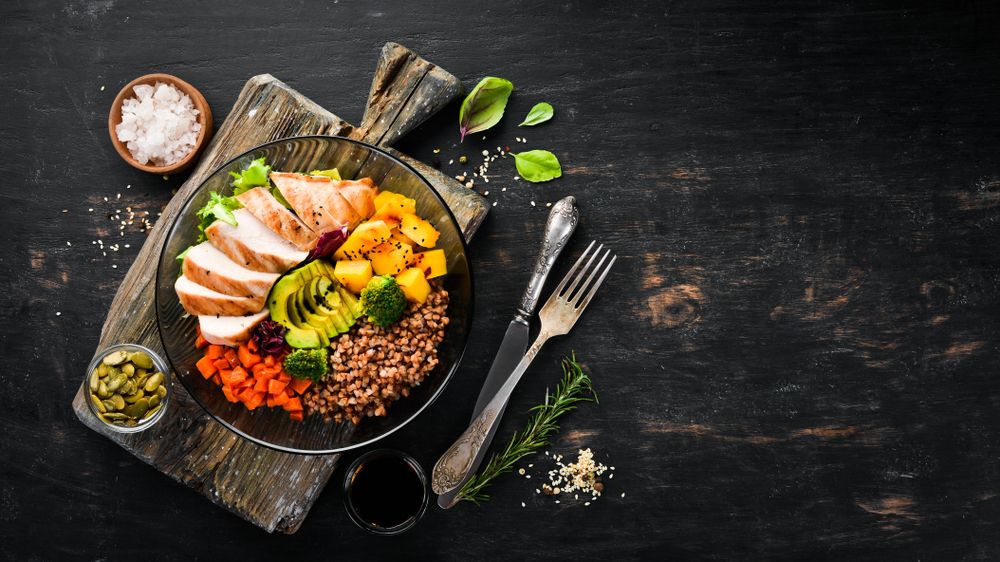Calorie requirements differ depending on personal goals like weight loss, maintenance, or muscle building. The first step in determining your daily calorie intake is understanding your specific health and weight objectives.
For instance, if you're aiming to lose weight, your calorie needs will differ from those focused on muscle gain or athletic performance. Once you've clarified how you want your diet to impact your weight, health, and performance, you can start assessing your energy requirements.
For individuals focused on weight management, a 1,500-calorie meal plan can be a useful strategy. Designed by registered dietitians, this plan prioritizes nutrient-rich foods that promote a calorie deficit, helping you reach your goals while maintaining proper nutrition.
Who is a 1,500-Calorie Diet Safe For?
A 1,500-calorie diet can be suitable for a variety of people. For instance, it may work well for individuals who already require a lower calorie intake to maintain their weight or moderately active adult women seeking weight loss or maintenance.
However, for most adult men or highly active individuals, 1,500 calories may not provide enough energy, even for weight loss. While creating a calorie deficit is key for losing weight, an excessive deficit can result in muscle loss, fatigue, and a weakened immune system. It's important to consult with your doctor or dietitian before deciding if a 1,500-calorie diet aligns with your needs.
How to Determine a Safe Calorie Deficit for Weight Loss
If weight loss is your goal, establishing a safe calorie deficit—consuming fewer calories than you burn—is crucial. For instance, if you burn 2,000 calories per day through daily activities and exercise, you might aim to consume 1,500 calories to promote weight loss.
A common strategy is to aim for a 500-calorie deficit per day, which can lead to about 1 pound of weight loss per week. However, because individual metabolisms differ, the rate of weight loss can vary.
A smaller daily deficit, such as 200 calories, can still result in weight loss, though at a slower pace compared to a 500-calorie deficit. On the other hand, a larger deficit exceeding 500 calories may lead to faster weight loss but could negatively impact your energy levels, muscle mass, and immune function. For these reasons, excessively large calorie deficits are not recommended.
Continue reading to discover what a nutrient-packed 1,500-calorie day of eating looks like, with balanced meals and snacks crafted to support your weight management goals.
Breakfast
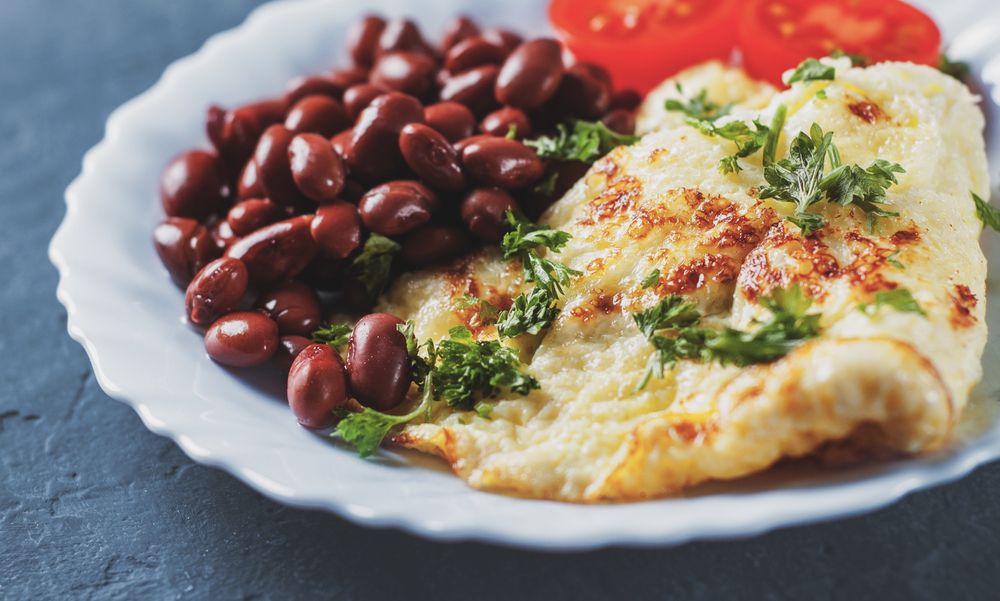
This recipe offers a balanced meal that's quick and easy to prepare. It’s packed with protein from the eggs, cheese, and black beans, helping to keep you full and supporting muscle health. The black beans also add a healthy dose of fiber, promoting satiety and aiding digestion. For an extra boost of nutrients and flavor, top it off with avocado and pico de gallo.
Morning Snack
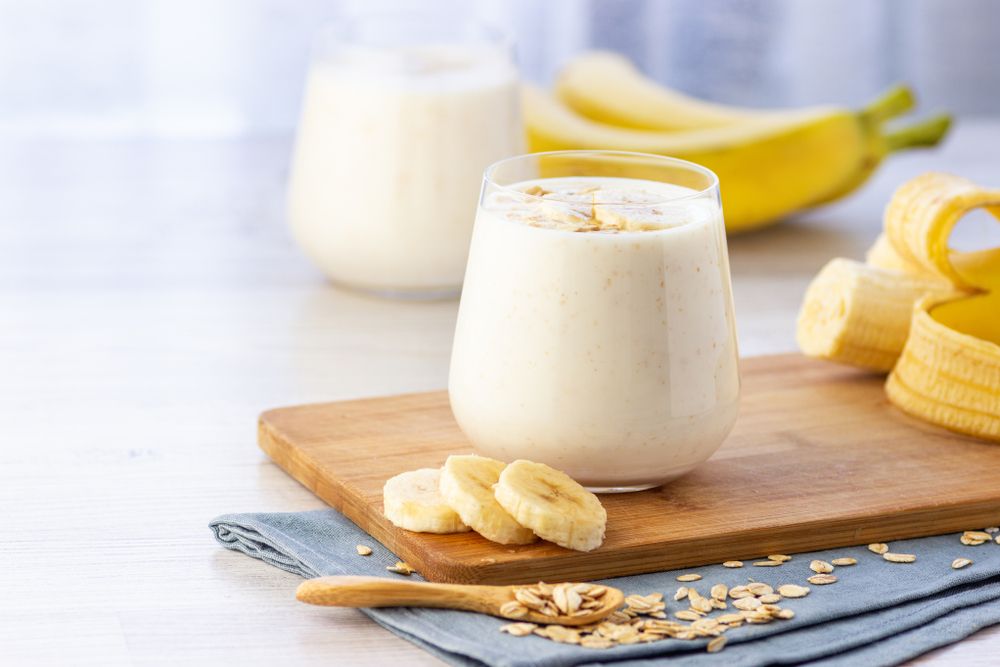
Smoothies are a great way to pack tons of nutrient-dense ingredients into a single container. Even better, they require little time to prep. The combination of ingredients in this smoothie makes it high in protein, loaded with healthy fats, and a filling snack with 7 grams of fiber. It is also plant-based, allowing it to work for those who follow a plant-based diet, or who limit their intake of dairy.
Lunch
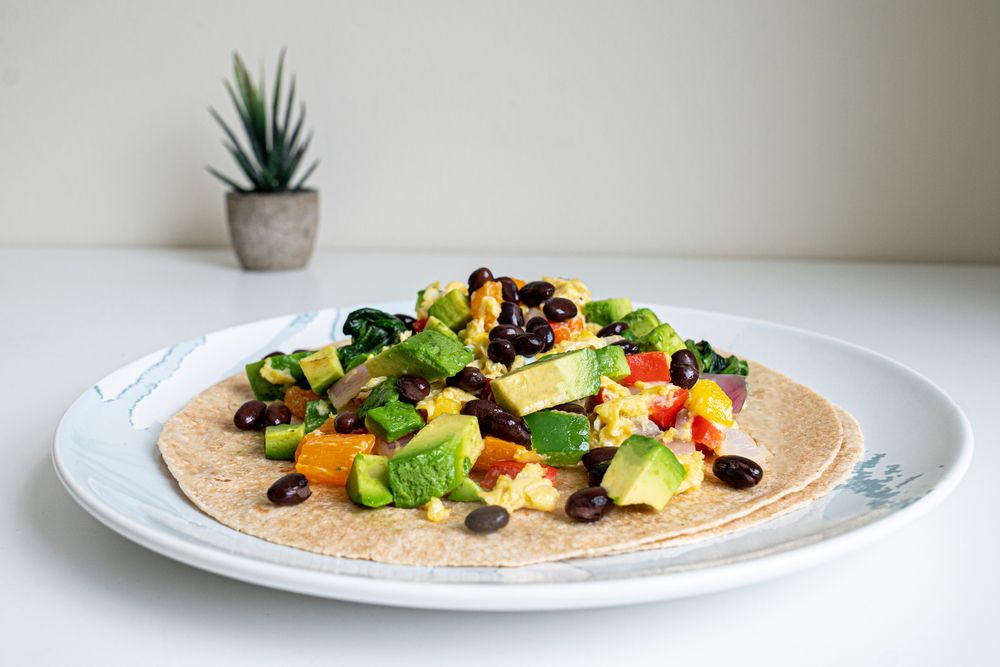
While burritos can be carb-heavy, this version uses a 10-inch whole wheat tortilla, offering a balanced amount of carbs with a good dose of fiber. The chicken provides satisfying protein, while the onions, peppers, and beans add extra fiber and nutrients. Pair it with your favorite hot sauce for a flavorful meal that fits perfectly into your 1,500-calorie meal plan.
Afternoon Snack
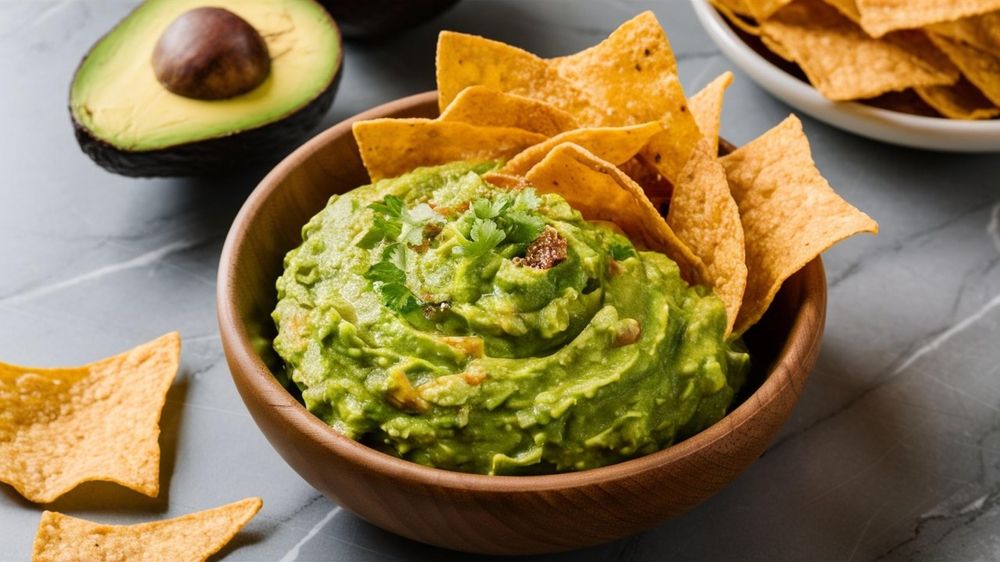
Avocado is rich in fiber and healthy fats, and its mild flavor makes it a versatile base for this delicious dip. Pair your guacamole with raw veggies like carrots, celery, jicama, and cherry tomatoes for a nutrient-dense snack that's simple to prepare and widely loved. If your meal plan allows for extra calories, add a handful of tortilla chips for a classic, crunchy treat.
Dinner
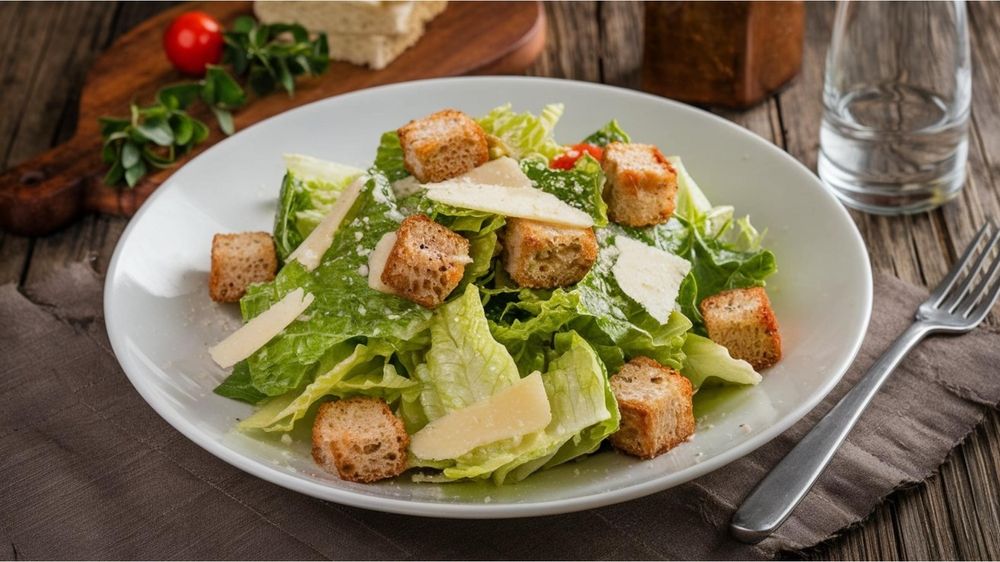
Salads are a great way to pack in nutrients while providing a satisfying portion for a modest calorie count. Traditional Caesar dressing can be high in fat and add hundreds of calories, but this homemade version delivers the same classic flavors with fewer calories. Grilled chicken provides lean protein, while romaine lettuce offers plenty of fiber and nutrients. For a flavor twist, swap the chicken for shrimp and add some spinach for an extra nutrient boost.
Total Calories: 1,514
Vegetarian Black Bean Omelet (330 calories) + Dark Chocolate Banana Nut Smoothie (229 calories) + Chicken Fajita Burrito (355 calories) + Guacamole (190 calories) + Grilled Caesar Salad (410 calories) = 1,514
Final Thoughts
A 1,500-calorie diet can be filled with delicious meals while helping you achieve your wellness and weight goals. Although it may not be suitable for everyone, many people can follow a 1,500-calorie plan in a healthy way. It's important to consult with your physician or a registered dietitian before starting any new diet to ensure it meets your energy and health needs.
A balanced diet includes the right amounts of protein, carbohydrates, fats, fiber, and a wide variety of vitamins and minerals. Regardless of your calorie intake, prioritizing a nutrient-dense, well-rounded diet is key.

